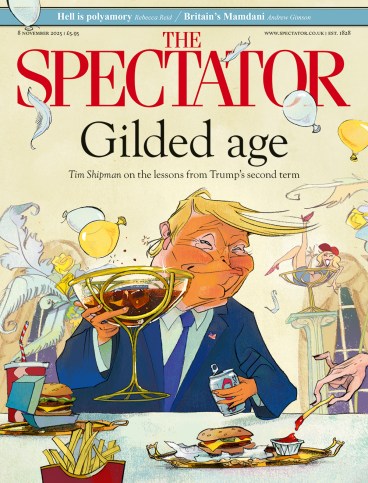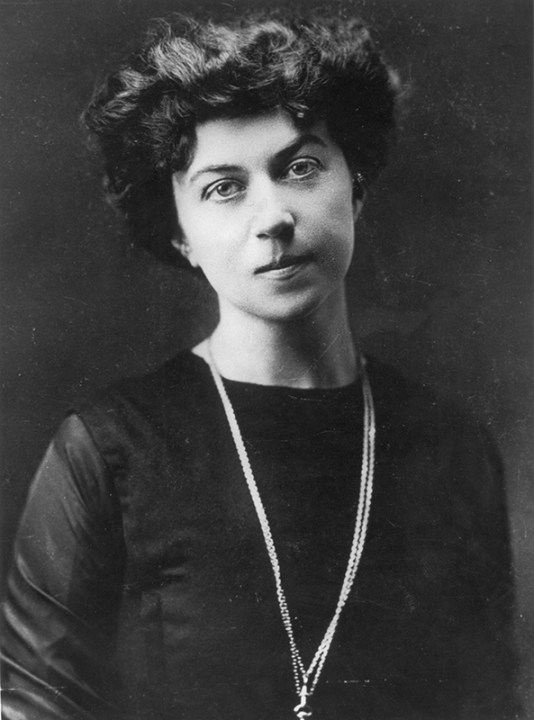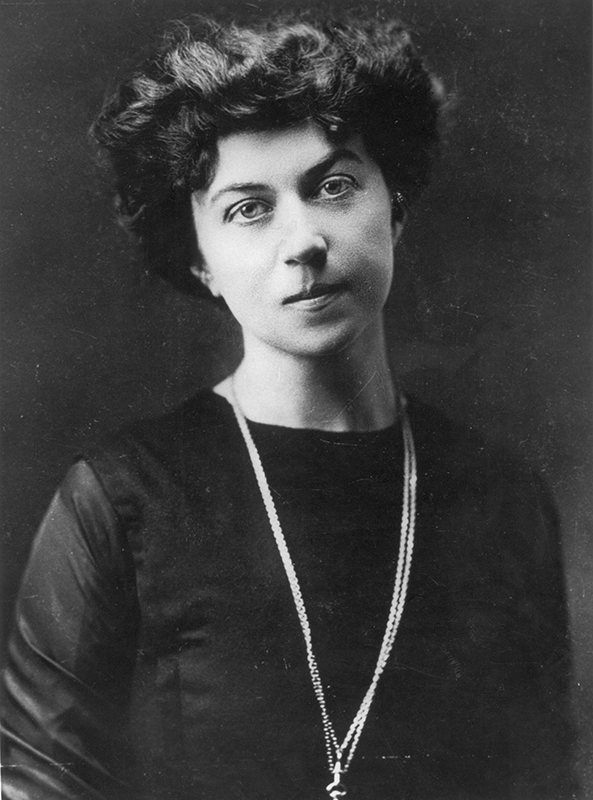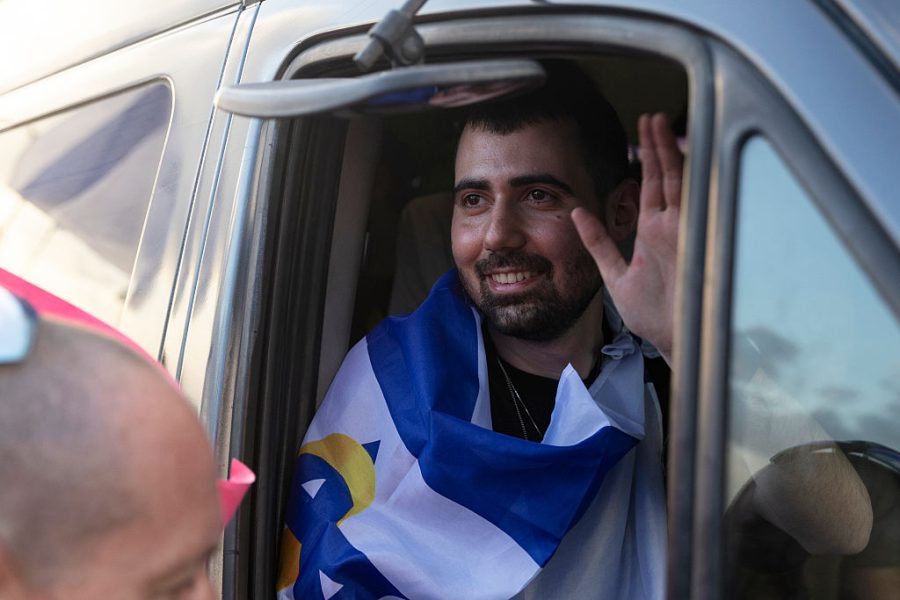
The excellent Moscow-born journalist Julia Ioffe’s first book recounts a well-known slice of Russian history from a fresh perspective – that of the mighty Russian woman who, it’s said, can ‘stop a galloping horse and run into a burning hut’. And how superhumanly brave and resilient they have had to be. Women were granted sweeping rights following the Revolution, then watched them dwindle for the rest of the century, in law but mainly in practice. What remained was the Soviet obligation to work regardless of gender, which created a country of professional women in every sphere: engineers, cosmonauts, judges, professors and 70 per cent of doctors by the 1970s. Ioffe emigrated with her family to the US in the 1980s; but when she returned to live in 21st-century Russia, she found that the fantasy of many women was to marry someone rich and abandon a career altogether – marking a full circle back to the bourgeois status quo that the Bolsheviks had been determined to destroy. The question Motherland seeks to answer is why.
Women rushed to enlist in the Red Army, many serving in combat roles as snipers or fighter pilots
In early 1918 Alexandra Kollontai, the first female cabinet minister in the world, issued decrees giving Russian women greater equality than any other country would achieve for decades. They already had the right to vote; now they gained the right to study in any institution; to no-fault divorce ‘almost completely free of male egoism’; to maternity leave; and to compulsory child support even from unmarried fathers.
Still more ahead of its time was Kollontai’s vision for women in which their work – ‘the social idea, science, calling, creativity’ – was the focus of their lives, and the state would support mothers, allowing them to continue working as fathers did. Both women and men would be free to express themselves sexually. This was Kollontai’s idea of the new socialist woman:
When the wave of passion sweeps over her, she holds out her hand to her chosen one and goes away for several weeks to drink from the cup of love’s joy… When the cup is empty, she throws it away without regret or bitterness. And again to work.
Yet Kollontai resisted the idea of feminism per se. According to Marxist thought, feminists were ‘bourgeois equal-righters’ and their mission was a petty, even dangerous distraction from the class struggle. The result was that when Kollontai and other powerful women were sidelined after Lenin’s death, the floor was left to Bolshevik men who, for all their revolutionary zeal, were unthinkingly conservative in their domestic lives. Certainly women must work – the ravaged Soviet state needed all the hands it could get to rebuild and industrialise. But in the home, without ongoing debate on gender roles or any other aspect of the patriarchy, it was women’s business as usual.
Nonetheless, young women who grew up in the 1920s and 1930s were inspired by the sense of the possibilities open to them that their mothers and grandmothers could not have enjoyed. Ioffe illustrates her narrative with the experiences of her own female forebears – Jewish girls who were raised under the intense anti-Semitic restrictions of the Russian empire. Two of her great-grandmothers became doctors, while a third obtained a PhD in chemistry and ran her own lab – an ordinary tally in the USSR, whereas in the US at the time, fewer than a third of women worked outside the home in any capacity. Women also rushed to enlist in the Red Army when war broke out, many serving in combat roles as snipers or fighter pilots. ‘We were a generation not from this universe,’ one veteran remarked.
After the war ended in 1945, with a Soviet population shrunk by both Nazi and Stalinist massacres, the emphasis was on repopulating the country. Soviet women – able to stop a galloping horse, etc – were expected to work full time, shouldering the ‘double burden’ of running the home, as well as bearing as many children as possible. When the promised state support failed to materialise, grandmothers provided unpaid childcare until they dropped. Yet the perception was that Russian men were the ones with problems; and indeed the lopsided situation seems to have marginalised them even within their families, driving them still further into vodka-fuelled despair.
Under these circumstances, it’s no wonder that the exhausted women of Russia began to dream of a simpler, if narrower, life as housewives. In Putin’s Russia, feminism is seen as a foreign idea, risible, ugly; the women that Ioffe interviews express sentiments that wouldn’t have sounded out of place in the 19th century. ‘In Russia, women are too active, too independent… We should be ready to listen to and follow our man, to say: “You’re the boss, you’re right.”’ The trad wife is on message for Putin’s new Russian empire, which harks back to pre-revolutionary cultural mores: Orthodox, strictly heterosexual and pro-life.
For all these fantasies of rich providers, few women’s lives have changed very much. In the third year of war since the full-scale invasion of Ukraine, millions of households are run by single working women, their husbands away fighting or never coming back. Where the men are present, however, surveys suggest a staggering 70 per cent of Russian women experience domestic abuse. Almost incredibly, the state’s response has been to decriminalise violence within the home. In one of the most shocking sections of the book, Ioffe quotes a Russian legal expert’s opinion on the reasoning behind this move: ‘Sanctioning violence in the home helps to sanction violence by the state… Might makes right. This could be a way to give men in Russia a steam valve.’ Politically impotent, economically depressed, Russian men can at least feel like autocrats in their own households.
Ioffe has written an extremely readable, personal and original account of the country she still thinks of as her motherland. Like most current analyses of Russia, however, it’s not overfilled with optimism.








Comments